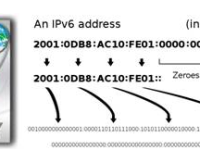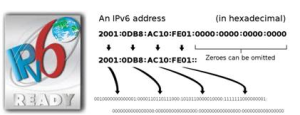The proliferation of radio streaming to cars, devices, desktops and mobile phones has certainly added to the overwhelming global demand for IP numbers. That and the huge growth of mobile streaming apps, ad delivery networks, hosting platforms and social media sites and blogs, have helped to use up all the IPv4 numbers at a far greater speed planned for initially. Every new app or device coming out seems to be enslaving one more IP number, leading to the huge shortage of original numbers designated for the internet when it was first developed.
In 2010, Securenet acquired large blocks of IP numbers on the new Internet IP IPv6 Numbering System, or Internet Protocol version 6, which uses a combination of alpha-numerics allowing for a quantum leap in the number of available web addresses. The top-level authority that governs IP addresses has already distributed the last batches IP version 4 (IPv4) numbers earlier this year. All new networks are now required to purchase blocks of IPv6 numbers from ARIN (American Registry for Internet Numbers).
The new IP numbers will allow the internet to continue to expand and grow, with the newest version IPv6 taking us far beyond the limits of the old system, giving us 2128 (3.4×1038) global IP addresses. Yeah, that’s right, 340 trillion, 282 billion, 366 million, 920 thousand, 938 - followed by 24 zeroes to be exact! When the internet was started, it was thought that the current IPv4 with 4,294,967,296 addresses would suffice. Hey, who counts this stuff, you wonder?
Check out the American Registry for Internet Numbers (ARIN) https://www.arin.net/knowledge/ipv6_info_center.html for more information.



